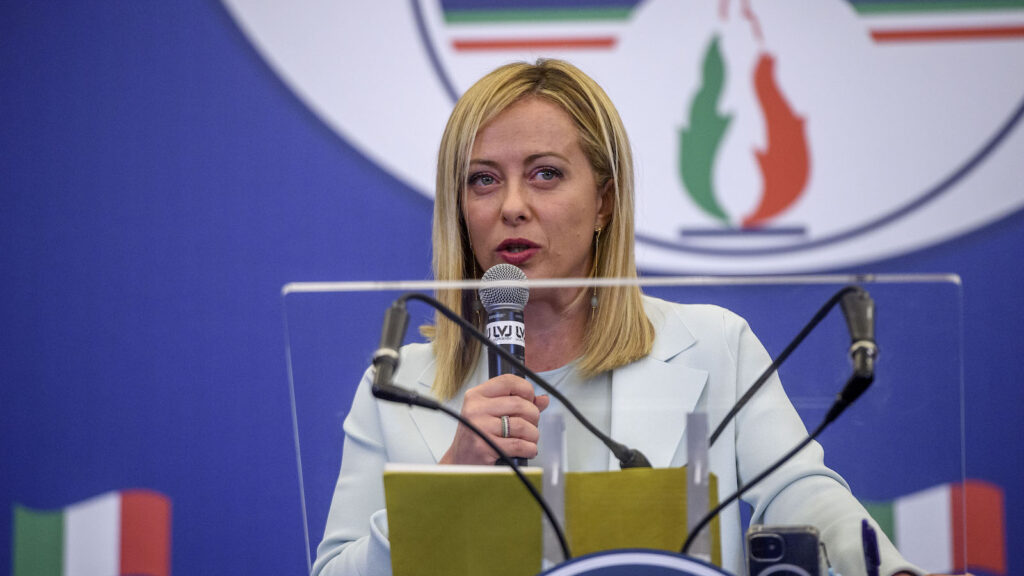Can Corporations Help Heal Broken Policy and Politics in an Era of Upheaval?

Reflection of the U.S. Capitol building, where both houses of the U.S. Congress meet.
Photo: Stefan Zaklin/Getty Images
Contemporary CEOs must be not only experts at addressing the commercial verities of products, markets and competitors, but they must also have the experience and capability to address business-in-society issues—legislation, regulation, investigation, enforcement and litigation—that create risk and opportunity in all dimensions of corporate activity.
But these societal issues are also the ultimate test of corporate citizenship—of whether a company can carry out the essential mission of global capitalism: fusing high performance with high integrity and sound risk management. And this test must be met in a global political culture characterized by deep distrust of corporations.
The Policy Dilemmas.The U.S. election creates two vexing policy dilemmas for global companies.
- How can companies navigate the nativist, protectionist “America First” industrial leanings of the current administration while advancing policies and practices suited to a free-market, open-border vision of globalization that is still the long-term future of the world economy?
- How can companies resist the temptation to “pig out” at the trough of pro-business initiatives like infrastructure, tax reform, deregulation, and health/environment reform, and try instead to ensure that changes truly protect the public good and promote the broad public interest rather than narrow, short-term corporate interests?
These dilemmas in the U.S. take place against the backdrop of great geopolitical uncertainty and change: from the confused (and confusing) consequences of Brexit to populism and illiberal democracy in Europe; from the re-assertion of aggressive Russian nationalism and Chinese assertiveness in Southeast Asia, to massive corruption in Brazil, and ongoing tribal hatred and religious conflicts of the Middle East. Moreover, corporations must confront a host of major, widespread and recurring global issues that threaten the health of capitalism: e.g., terror, cyber warfare, corruption, pandemics, inequality, migration and aging. And these dilemmas and problems must be filtered through different approaches to government in different nations, whether they operate by state capitalism, socialism, populism, state-centric industrial policy, or liberal market economies.
The Political Problem: Popular Distrust of Business. In addition to the policy dilemmas and challenges, business faces the political problem of intense distrust in many quarters of society. The current popular revolt is more sharply critical of business than the general anti-corporate undercurrent that has long been present in American politics. A situation not helped by a president who has no problem haranguing individual companies via his digital bully pulpit on social media.
The public distemper stems, in part, from genuine problems of recession and a changing economy that has left people behind. But well-publicized problems in the corporate community have added to political dysfunction, leading to low levels of trust in business’ role in policy and politics. These include: a steady drumbeat of corporate scandals; ever higher executive compensation combined with stagnant real income of average citizens; corporate mistakes relating to leverage and liquidity as a major cause of the Great Recession; the perception that business elites have disproportionate influence due to money in politics; and an aggregate sense that too much of corporate involvement in policy is in the service of “crony capitalism,” the range of subsidies, loopholes, franchises, concessions et al. that have little or no basis in advancing the broad public interest.
CEO Role in Fusing Policy and Politics.CEO acumen on business-in-society issues is thus imperative in regaining trust and in addressing fundamental corporate issues, from business strategy to compliance to ethical standards to risk management. This must start with the CEO’s commitment to strategic and operational processes that explicitly include a public policy dimension. The CEO must make clear to division business leaders and to senior staff executives that their annual plans should include and integrate three dimensions of global public policy issues: What is the desirable policy (policy formulation); what is feasible policy (policy enactment); and how can enacted policy become effective (policy implementation). In annual strategic reviews, business and senior staff leaders should present a prioritized agenda of offensive and defensive policies relating to their line of business or area of expertise in nations across the globe so that the CEO can make decisions on priorities and resources. Regular CEO reviews—just as on other key corporate issues—should oversee whether milestones are being met for formulation, enactment and implementation of public policy.
By focusing on political process issues—money, coalitions and integrity—business can help heal our political system.
This governmental process depends on having both policy experts and political experts inside the corporation. The policy experts are key team members located at headquarters with business and corporate unit leaders. They have domain knowledge either in specific industries (e.g., health or energy) or in general crosscutting subjects (e.g., taxes or trade). They help lead the annual strategic process, which designs desirable policies in the context of corporate and societal trends. The political experts are located—not at corporate or division headquarters—but in the political capitals. Their “clients” are the decision-makers in the legislature, the executive and the regulatory agencies. These experts help enact and implement the desirable policies, translating proposals into feasible results through communication, advocacy and alliance-building that, today, must include interests far beyond corporations. Their expertise is acute knowledge of global, political and governmental processes, and an understanding of how to get things done with integrity in Beijing, Budapest, Brussels or Boston.
The integration of policy and politics is the sine qua non of success. The policy expert needs advice from the political expert on what is feasible in setting priorities at corporate headquarters; the political expert needs constant contact with the policy expert to assess the desirability of policy changes in political capitals as governmental decision-making processes follow their inevitable twists and turns. Beyond finding the right policy and political experts, the CEO must ensure that the corporation is led by broad-gauged people at both staff and operational levels who are not just expert in business but have deep understanding of politics, policy, ethics, societal trends, country risk, modern communication and citizenship.
Regaining Trust. The rude noise of our current politics at the dawn of the new administration and the genuine substantive differences and dilemmas suggest that business ought to consider working with other actors in our political system on at least the following issues of political process to engender more civility and compromise, and to regain lost credibility and trust. Each of these subjects is worthy of extended, book-length discussions, but here are the headlines:
- New substantive limits on campaigns awash in money (more than $7 billion estimated in 2016 federal elections). Although “independent” spending for educational purposes or in support of candidates is protected speech under the First Amendment, it may be limited under the Constitution if improperly coordinated with candidates’ campaigns or if used for corrupt purposes. A more effective Federal Election Commission (with a tie-breaking chair) could address these issues with tougher rules.
- More financial disclosure. A key initiative is to require that the Internal Revenue Service makes more real-time disclosure of contributors and expenditures for “independent” entities organized under their jurisdiction (like trade associations) that are engaged in “education” on campaign issues during a defined political season.
- Develop fairer, clearer facts in policy disputes. Corporations and other parties could work with public officials to devise better, honest methods for establishing a record of consensus facts in legislative and regulatory disputes and identifying the assumptions underlying contested facts so that the battle between experts is more clearly understood by decision-makers and the public.
- Acknowledge the need to balance values in conflict. Corporations and other parties should identify and acknowledge the values on both sides of most regulatory and legislative debates and make a good faith effort to give weight to all the values in conflict, e.g., finding a fair balance between: the verities of equity and efficiency in social welfare legislation; access, cost and quality in health care legislation; expedition and safety in drug approvals; and short-term cost and long-term benefit in environmental regulation.
- Build broad coalitions. Too often business-related public policy efforts take place in the self-referential echo chamber of trade associations or other business groups. Working with other interested parties to create coalitions that include, but are not limited to, business allies increases the chances of broad-minded approaches that can secure approval and provide durable benefits. Indeed, there is no united “business community,” and disagreements among business actors (e.g., global versus domestic, tech versus industrial) means broader coalition building is necessary.
- Cool the rhetoric. One of the poisonous aspects of our current political culture is rhetoric that demonizes opponents with words such as “hate” or that descries an approaching American Armageddon. Business, especially, should use calm and reasoned civil discourse, recognizing that there are usually legitimate opposing values in political debates and helping to find a middle ground that does not demand total victory.
- Avoid Partisanship. Corporations should seek bipartisan or nonpartisan solutions to our most pressing problems to mitigate the anger and hostility exchanged across the aisle on so many pressing national issues that require sensible compromises. Too often relations in Congress or between Congress and the Executive look like an insoluble “blood feud.”
There should be no mistake. These political process issues—relating to money, facts, balance, coalitions, rhetoric and bipartisanship—may be as vexing and controversial for the business community as substantive policy positions.
Some companies will resist, because they believe their particular substantive position is more important than general process. Nonetheless, by focusing on these and other process issues, business can help heal, rather than exacerbate, the manifest ills in our political system made worse by a divisive administration—ills posing serious threats to the maintenance of a healthy constitutional democracy and a sound mixed economy in which vital public goods can be secured and private enterprise can flourish.
These issues are at the core of what corporate citizenship means, in my view. This subject is too vast for a single corporation, but a broad based “coalition of the willing,” extending far beyond corporations, may be one step past the dystopic present—what leading political scientist Francis Fukuyama has warned is American “political decay.”








